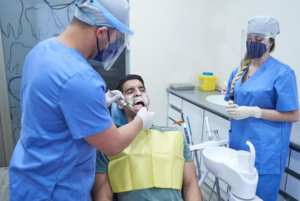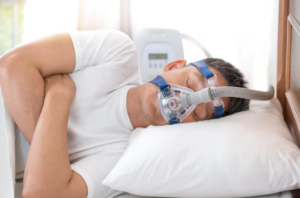
Sleep disorders, while often overlooked, have a profound impact on the health and well-being of millions. Though commonly associated with mere nocturnal disturbances, the repercussions of untreated sleep disorders can seep into various aspects of daily life, from cognitive functioning to heart health. With an ever-evolving medical landscape, it’s essential to understand both the implications of these disorders and the modern interventions available, including the revolutionary oral health interventions for addressing sleep disturbances.
The incessant buzz of an alarm clock usually signals the start of the day. However, for many, it’s a grim reminder of another night of restless sleep. While it’s easy to dismiss recurrent disturbances as mere inconveniences, they may be indicators of a larger issue – a sleep disorder.
What’s At Stake?
Cognitive Health:
A restless night could lead to a foggy day. Chronic sleep disturbances have been directly linked to diminished cognitive functions. It impacts memory, decision-making, and even emotional health.
Cardiovascular Risks:
One of the more alarming repercussions of untreated sleep disorders, particularly sleep apnea, is the strain it places on the heart. Hypertension, arrhythmias, and even heart attacks have been associated with recurrent apnea episodes.
Metabolic Disruptions:
Sleep intricately ties with metabolism. Disorders can lead to weight gain, diabetes, and other metabolic syndromes.
The Modern Dental Revolution
Contrary to popular belief, the solution to sleep disorders isn’t always tethered to the bedroom. Dentistry has ushered in a series of modern therapeutic interventions for those suffering from sleep disturbances. Here’s how:
Tailored Oral Appliances:
Not everyone can tolerate the traditional CPAP machine used to treat sleep apnea. Customized oral devices, often resembling athletic mouth guards, have emerged as comfortable alternatives. They work by repositioning the lower jaw and tongue to keep the airways open.
Holistic Dental Approach:
Beyond appliances, leading dental practices have championed a holistic approach. By understanding the unique needs and medical histories of patients, they devise treatment plans that tackle not just the symptoms but the root causes.
Collaborative Care:
Dental interventions are most successful when implemented collaboratively. Regular consultations, combined with lifestyle changes and medical interventions, promise comprehensive care.
For those keen on exploring oral health-based approaches to sleep disorders, it’s vital to turn to experienced dental professionals. As we delve deeper into the intertwining realms of sleep and oral health, the possibilities seem endless. Recognizing the signs of sleep disorders and seeking timely intervention can pave the way for nights of restful sleep and days brimming with vitality.







